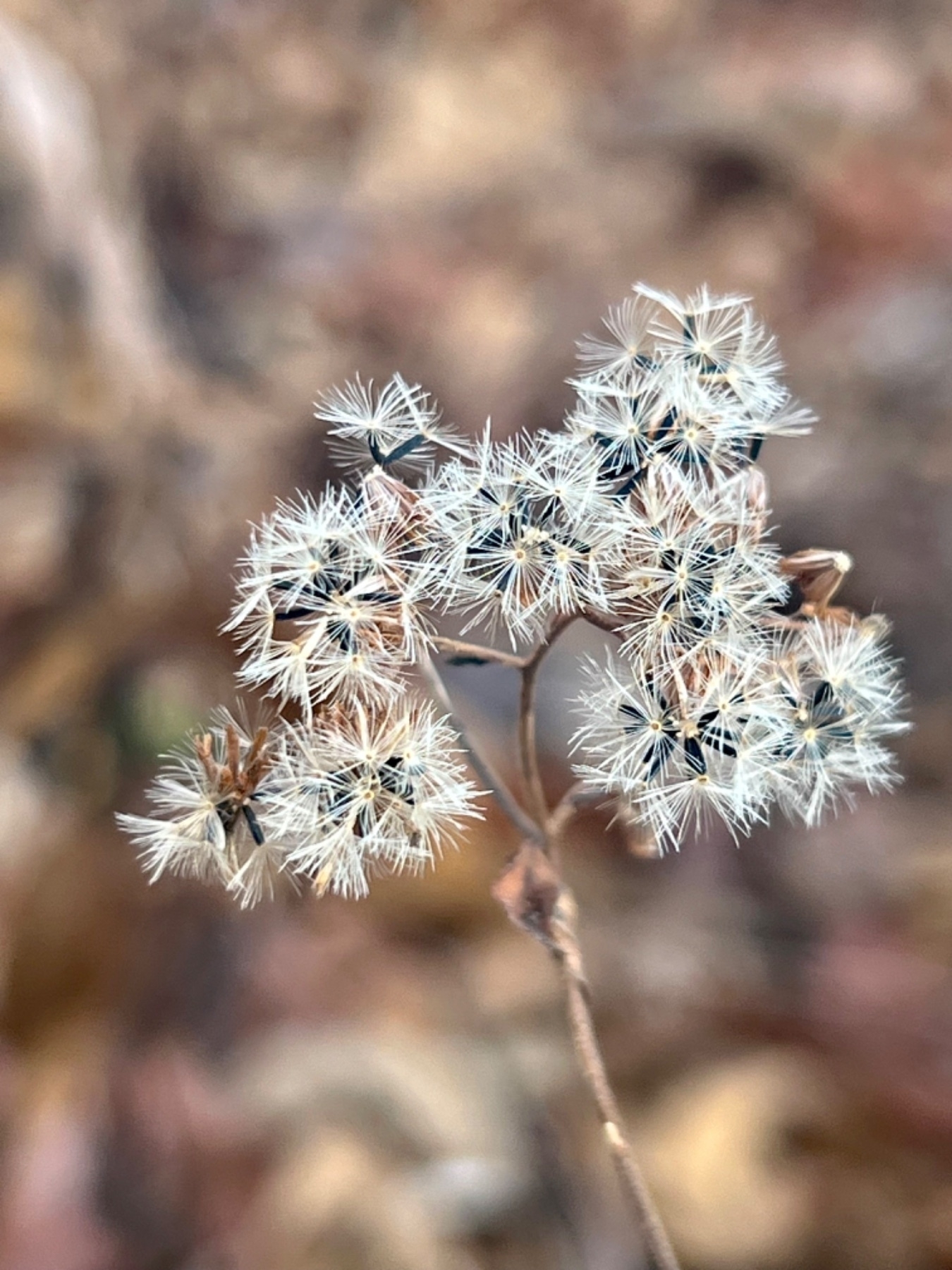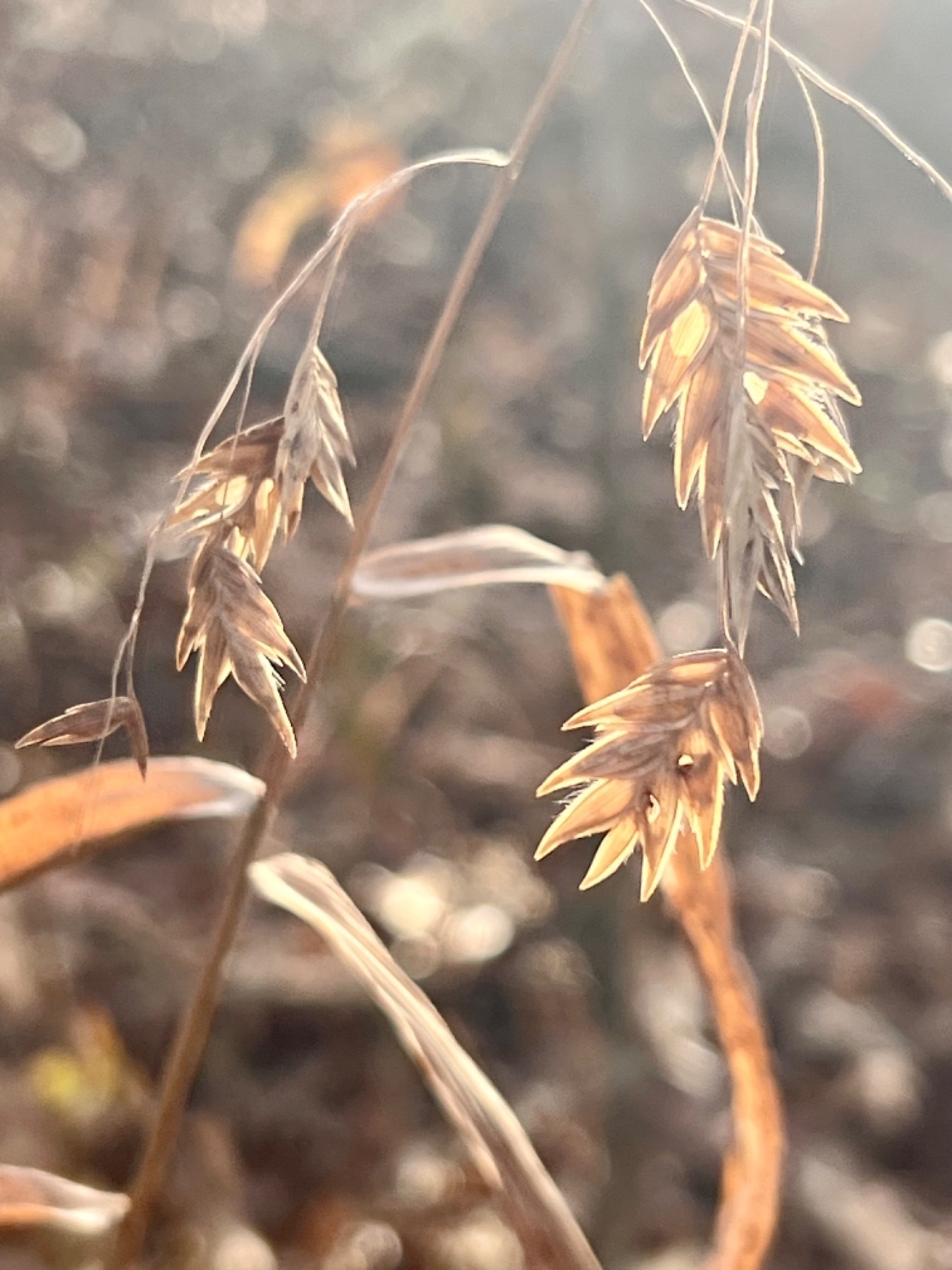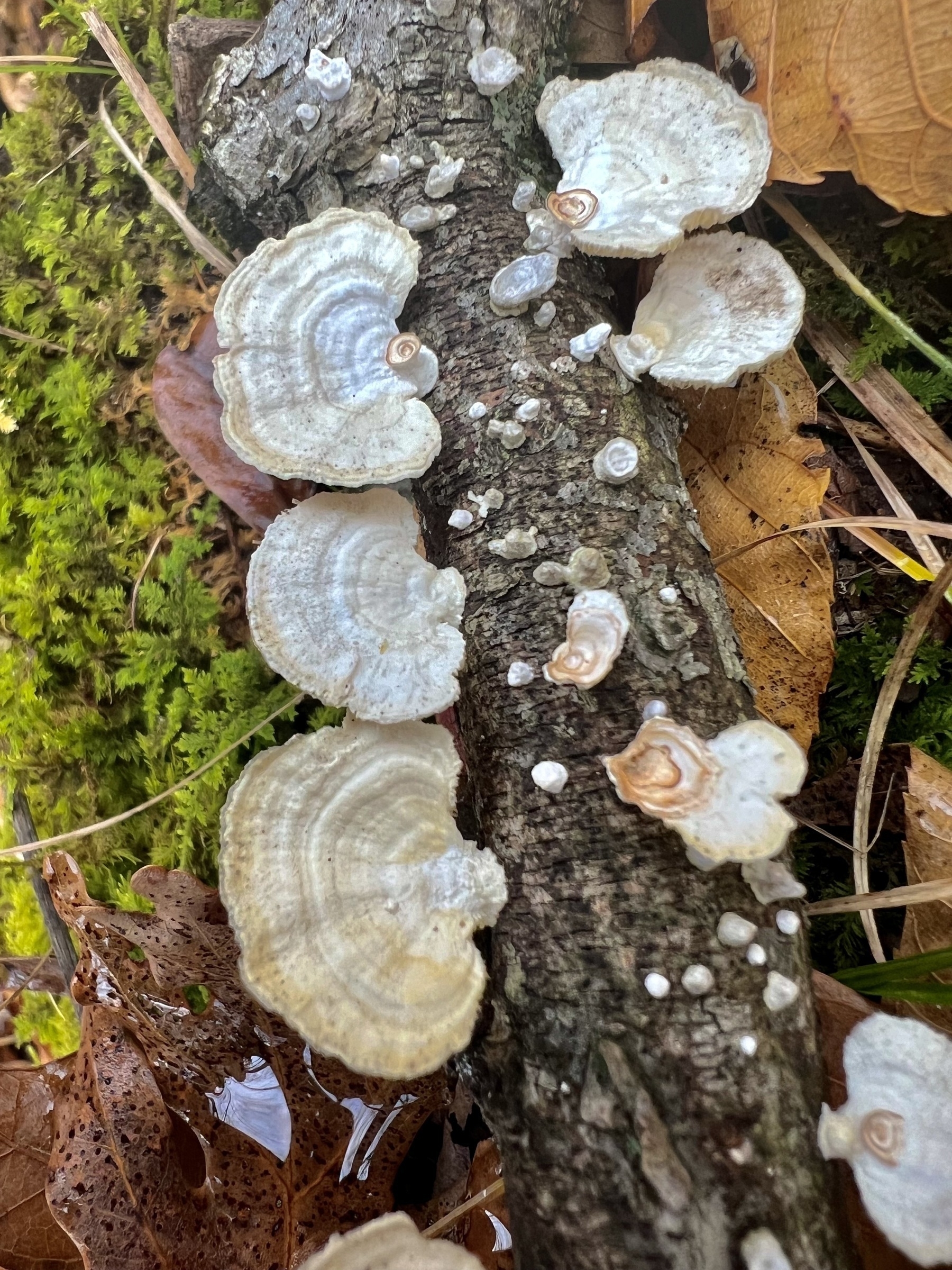“We are talking about over 7,000 Palestinian political prisoners inside Israeli prisons right now. More than 2,500 are being held under administrative detention … without a charge and without a trial,” says Tala Nasir, a lawyer with Addameer, a group that advocates for Palestinian prisoners. We also speak with Israeli journalist Orly Noy, who says the sheer number of Palestinian prisoners shows “how central the tool of incarceration is in the Israeli project” of occupying and oppressing Palestinians
Incarceration Is a Central Tool of Israel’s Oppression of Palestinians | Truthout
Obsidian and Interstitial Journaling
It’s only been a couple weeks since I decided to give Obsidian yet another try and yes, this is going to work out. I’m so glad I decided to give it a try again. A few brief thoughts too about interstitial journaling.
First, my primary use of any markdown/text app is for writing blog posts. In this regard Obsidian is generally on par with any other markdown editor and so it’s easy to just copy my archive over. That’s the beauty of working from folders of files. I duplicated and tweaked my previous Shortcuts for quickly creating new posts from the Home Screen or for link blogging from a web page that now save to my Obsidian folders.
As for journaling, I’ve only ever been irregular at that effort. Obsidian has the daily note feature to help the process along so I took a look at various templates in the hopes that perhaps I’d find one that might help in the process. After a few days I found it wasn’t quite what I wanted. As I browsed around I hit upon “interstitial journaling”. My first thought was, no, not for me.
If you’re not familiar, the basic concept is to just record a timestamped entry when you’re between tasks. Note what you’ve finished, what you might work on next or if you’re taking a break. A sort of running commentary on the day but geared towards productivity. But I wasn’t looking for a productivity hack or anything focused on that. I tend to do fine getting work tasks done without any additional tools or apps. I’d rather my journaling be a bit more open. But something about frequent, time-stamped writing appealed to me. The structure isn’t topical, it’s not definite or set. I’m viewing it as a tool for simple self awareness and as an opportunity to note thoughts and activities as they seem worth noting.
A week in and I have to say that I’m really digging it. I set aside any desire to focus on some sort of constant productivity/task journal and have simply used it to check in. The time stamping pulls me in, I honestly don’t know why. But I do know that I’m writing more as a result. Also worth mentioning, there’s a behavioral phenomena called the Hawthorne effect that several folks have mentioned. The idea being that people “modify an aspect of their behavior in response to their awareness of being observed.” The idea in relation to interstitial journaling is that as one starts paying attention to the moments of a day with the added intent of recording those moments, a kind of self awareness sets in.
I suppose in a round-about way I am, in fact, being more “productive” but frankly, I’m just not fond of all of the nerd focus on productivity. I’d much rather think of it in terms of cultivating self awareness. Regardless of the framing, I’m finding it enjoyable and useful. And, unexpectedly, I feel like my days are longer and almost more meaningful as a result of the increased focus on my daily activity.
It’s worth noting, that most of what I’m doing with Obsidian I could have accomplished with iA Writer or other markdown editor. It’s a strange thing really but it’s a fairly small design detail that partly served to prompt my look back to Obsidian. I wanted to be able to more easily navigate and see all my files in folders at the same time. Most markdown editors have a sidebar file browser that functions as a singular column list of files. It makes for a lot of clicking or tapping to navigate. Obsidian offers disclosure triangles and it just feels easier and faster to view the contents of multiple folders at once.
That said, Obsidian is extendable via plugins so it does actually do quite a lot beyond a standard text editor. But out of the box it can be used in a more standard way. As I poke and prod I expect I’ll share a bit about some of the more advanced features.
While out on a trail walk yesterday, I saw something small and white moving around in the leaves and met this cute, furry moth, Artace cribrarius, the dot-lined white.



The substance of democracy is us. To keep it we need to work for it everyday..
I’ve written two posts recently that I thought I’d tie together. The first was a post about the occasional resurfacing of the “minimalism” or “simple living” trend or meme especially as it exists as phenomenon in the US. The second was a response to a recent article in the Guardian about Trump’s authoritarianism.
The common thread between the two is fairly obvious but still worth calling out in its own post and it is this: in 2023 America finds itself in a deepening crisis of identity as a failed democracy. It’s not new but it is only growing worse because it’s not being addressed. And really, it’s not one crisis but rather several interdependent crises that have been decades in the making. Which is to say, these are crises deeply rooted in multiple generations of Americans, deeply rooted in our culture.
A failed democracy? Really? Has it fallen that far? We’re still having elections after all and though there were efforts to overturn the 2020 election by Trump and many of his supporters and in his party the results were upheld in the face of those efforts. Is that not evidence that democracy in the US continues to exist?
I would argue that democracy in the US, if it can be said to still exist, is weakened by decades corruption. It has been eroded to a thin veneer with little substance because the substance of democracy is the people. And the majority of people of the US stopped caring decades ago. Any sense of civic responsibility, of active citizenship has been eroded by decades of apathy. The truth is, America traded that responsibility for something shiny, something convenient: The American Dream.
Consider that phrase for a moment. What do you picture in your mind?
I was surprised (though perhaps should not have been) that Wikipedia even has a specific page for the American Dream. These two paragraphs are significant to our problem:
The American Dream is the national ethos of the United States, a set of ideals including representative democracy, rights, liberty, and equality, in which freedom is interpreted as the opportunity for individual prosperity and success, as well as upward social mobility for oneself and their children, achieved through hard work in a capitalist society with few barriers.
The term “American Dream” was popularized by James Truslow Adams in 1931, saying that “life should be better and richer and fuller for everyone, with opportunity for each according to ability or achievement” regardless of social class or circumstances of birth.[1]
I’d urge you now to re-read that slowly and carefully. Then, again from that page:
Throughout American history, there have been critics of its national ethos. Some critics point out that American focus on individualism and capital results in materialism, consumerism, and a lack of worker solidarity.[3] In 2015, only 10.5 percent of American workers were members of a labor union.[4] The American Dream has also been criticized as a product of American exceptionalism, as it does not acknowledge the hardships many Americans face, namely in regards to the legacies of American slavery and Native American genocide, as well as other examples of discriminatory violence.[5]
Those paragraphs sum up the problem very well. Any honest look at the America of 2023 would indicate that Americans simply gave up the collective effort to manage their country in favor of the pursuit of prosperity. Though it’s a poor indicator of democracy, participation in the electoral process is one common indicator used and in the US participation has fairly low for decades. Sure, there are years when participation in elections bumps up. For example, in the 2020 presidential elections 66% voted. That’s up from around 56% turnout in 2016. Midterm participation is lower. For example, in 2018, it was 47%. So, not great. Let’s compare to a few others' recent national electoral participation:
- Sweden, 2018: 82.1%
- Belgium, 2019: 77.9%
- Germany, 2017: 69.1%
- South Korea, 2020: 66.5%
- Canada, 2019: 65.1%
- Spain, 2019: 65.1%
- UK, 2019: 62%
- US, 2016: 55.7%
So, in general, voter turnout in the US is low. But that’s far from the whole story because democracy is not just about voting for a president, a house or state representative or a senator or even voting locally.
I would argue that a more important measure of democracy is what we do on the hundreds of days a year between elections. Consider a decade. 10 years is 3,650 days (ignoring leap years). Setting aside 10 days of voting that leaves 3,640 days. What’s our job as citizens for those remaining days? Is it nothing? Are we meant to be on vacation on those days? Because that’s certainly the way we seem to be treating the job. Maybe we vote maybe we don’t. And then the remaining days we’re on vacation.
This is why America is a failed or failing democracy. Because its people have allowed capitalism to step in and act in their stead. We stepped out and they stepped in. It’s that simple. When we get all hand wavy, finger pointy and angry about school shootings, climate emergency, outrageously expensive health care, well, my fellow citizens, we should go have a long look at the mirror so that we might face up to the problem.
We need to have that conversation with ourselves and each other. What are we doing about our democracy? If we’re truly going to quit then let’s FUCKING OWN THAT CHOICE. If we don’t want to be bothered with democracy then let’s admit it. We should loudly proclaim it rather than this bullshit moaning and pretending we go on with. It’s a farce we’re all playing along with. Truly, it’s embarrassing.
But I hear you asking. Well, but, but what are we to do? I’m just one person, what do you expect me to do? I can’t change anything. That’s the reasoning we all use. I can’t fix it. We convince ourselves that this is a valid response and then we continue pretending it’ll all be okay.
Stop pretending and start building. As the Wobblies used to say: Don’t mourn, organize! Let me give you a list to help you get started. We all love lists. This is far, far from a complete list. But it’s something to get you started. It’s also not in any kind of order. Some of these are things you can do as an individual, some are better with a group. Some are both. Many are more about building local community culture and capacity. Building democracy is not just about politics - remember that.
- Read Howard Zinn’s A People’s History of the United States and more history of people’s movements in the United States.
- Corresponding with the above, make it a specific point to read more about the labor movement, it’s tactics and the general strike
- If you have a blog or use social media begin using it differently. Think about how a citizen concerned with their country’s future might use social media. Shift the conversation.
- Take an interest in the goings on in your neighborhood. Get to know neighbors if you don’t know them already. These are your neighbors and some of the most important citizens you can know. Care about them.
- Identify problems in your neighborhood and consider how they need to be addressed. Talk to neighbors about those problems. Figure out a way to deal with it directly or talk to others who can help.
- Grow the capacity of your neighborhood to take care of itself. This fits with the above two and is just a continuation of a process of taking more responsibility for ourselves in a space that we can have an immediate, tangible results.
- Consider creating community and neighborhood institutions like co-ops that can help fill real needs. I’ll list some of these further on in this list.
- Create study groups! I call them study groups, you could also call the working groups or reading groups or whatever else fits. These might function in a neighborhood context or not. Interested in gardening or community gardening? Form a group to explore it. Interested in fixing up a vacant lot? Form a group. Some groups might be temporary, project specific. Or might start with a task or project but then carry on to something else. The main thing is to get with others to learn as a group and even better, act as a group.
- Start a community newsletter. It might seem old-fashioned in the internet age. But just consider how your neighborhood communicates with itself. How do neighbors keep up-to-date with the community news?
- Create a lending library. Some public libraries already loan out more than just books. If yours doesn’t then start your own. The point is to share resources amongst neighbors. Tools, books, bikes, cars, etc. These already exist.
- Create a community workshop or maker space. This might go well with the above. It’s a space for people to fix things, learn to fix or teach others to fix. It might become a space that specializes like a bike repair/recycling shop or it might be more general.
- Cultivate a community of mutual aid. It goes with the above suggestions. Look for ways to help one another, to learn from one another. If a community is building ways to help itself it becomes more self reliant, more likely to re-use resources and goods that are not always getting used.
- As the climate emergency grows, emphasize cycling in your community. Consider group rides for fun. If you’re new to cycling a group ride can help you gain confidence. Experienced cyclists can volunteer to do safety clinics to teach others. Learn and teach one another how to do basic bike repairs. Help refresh old bikes and get them on the road again. If there’s enough interest, start a larger cycling advocacy group to work with local town/city government to improve or add to existing cycling infrastructure.
- If your community has a library consider how your activities might fit in there. Is there a meeting room available for public events were study groups, workshops, classes could be held? Consider taking on more difficult topics, create longer term study groups that explore more complicated problems. Find speakers to bring in that might help people better understand local, regional issues and problems.
- Volunteer at your local library.
- Get in touch with already existing community orgs. Find out who’s nearby or in your city. Consider helping those already doing work.
- Many cities have groups already functioning that need volunteers in a broad range of mutual aid activities like teaching adults to read, aid to the houseless. Find an organization you can help and volunteer your skills whatever they may be.
- If you’re an artist or musician you might be a part of a larger local community of creators. Consider working together either for your own community via co-op activities and also for the benefit of others by doing fundraisers.
- Potlucks! Potlucks! Potlucks! Make these a regular happening in your community. Neighborhood potlucks are essential. Move the location from house to house or consider hosting in other spaces if available. Make the weekly, monthly, or as often as possible.
- In many of the above projects consider partnering with the small, locally owned businesses around you.
- Make it a habit to always be on the lookout for new sharing opportunities. Often times personal interests and hobbies can be branched out into valuable community enrichment activities. Have a telescope and knowledge of the night sky? Work with your local library to do a monthly star party. Alone or with other local star gazers, get out and help others see Saturn, Jupiter or the Andromeda Galaxy for the first time. You’re an avid photographer and naturalist? Work with the library to organize a photo walk in the local park or public forest.
Much of the focus with the list above is our shifting our priorities from our individual selves or even from our core family to include the larger community. It’s not politics so much as it is direct participation in the life of our communities. Democracy is not laws, rules, regulations. In its fullest, most meaningful expression democracy is the self management of our lives in community. It’s when we understand that our well being extends outward and includes the well being of those we share the planet with.
This is not to suggest that we should not also be working on and in the larger political processes going on around us We should. Those processes are broke and are in need of our attention. But to do that affectively we also need to remember the strength that comes with shared civic life. That shared civic life can be thought of as an expression of democracy as well as solidarity, a phrase that was in common use in the labor movement of 100 years ago.
In a future post I’m planning to share more about how we might create and build democracy politically. Plenty of people have already written about this. For now I’ll simply say that we have to turn our attention the fact that our political processes currently seem to be in a state of corruption and disfunction. We see it on on all levels and it’s well past the time that America get beyond the notion of cleaning the house. We have to reconsider the foundation. There’s nothing about it that will be easy.
Israel has long practiced “administrative detention” against , Palestinians, jailing them indefinitely without charge or trial. They call it a lawful preventative security measure using it to target people for political activity, including speech and nonviolent protest.
Even beyond administrative detention, when charges are brought against Palestinians they are almost always tried in military courts that have a near-perfect conviction rate.
Human rights groups have deemed it a violation of international law.
Palestinian prisoners and Israel’s unlawful administrative detention policy - Vox
How and why did the US get to this?
Trump’s talk of seeking “retribution” against foes, including some he’s branded “vermin”, has coincided with plans that Maga loyalists at rightwing thinktanks are assembling to expand the president’s power and curb the DoJ, the FBI and other federal agencies. All of it has fueled critics’ fears that in a second term Trump would govern as an unprecedentedly authoritarian American leader.
‘Openly authoritarian campaign’: Trump’s threats of revenge fuel alarm | The Guardian
The answer is in front of us. For decades we’ve allowed ourselves to be redefined from citizen to consumer. Whatever interest in self governance we may have had in the past has been drained away as we’ve allowed ourselves to be distracted by entertainment, shiny things, comfort, convenience. Our planet burns, people starve or go without medical care, children are shot in their schools. And yet we go about daily life, prioritizing our own happiness. We’ve forgotten how to be active citizens.
There should be no such thing as “activism” or “activists”. Those words are fucking ridiculous. They exist because most citizens don’t want to do the job of citizenship. “We the people” is a fucking farce and has been for a long time. Our “democracy” was broken from the start (designed by the privileged for the maintenance of priviledge) but it’s only gotten worse. And now here we are, divided, frustrated, angry but still unwilling to do the work of participatory, active citizenship.
Look in the mirror if you want to see why we are at the threshold of authoritarianism. What have YOU done to stop it? Oh, me? No, what can I do? Nothing I can do.
Our attitude is always that the problems are caused by others. Corrupt government. Greedy corporations. Welfare recipients that don’t want to work. The list goes on. There’s always someone to blame. But it’s never us and our lack of commitment to citizenship.
The truth is most Americans don’t actually seem to want democracy.
We like to pretend we do. We allow ourselves to think America is the “home of the free, land of the brave” blah, blah, blah. But that’s just nonsense in 2023. It’s arrogance, hubris and lazy patriotism.
The truth is we don’t want to do the work of democracy. And no, not just voting. That’s the most minimal expression of what is a fairly hollow politics. I’m talking about the day-to-day practice of self governance. Of being a part of neighborhoods, communities, towns. Of being connected.
Democracy is going to city council and school board meetings. It’s calling your county commissioner to express concerns because you’re taking an interest in the happenings of your community. It’s noticing a problem on your street or in your neighborhood and taking an interest in fixing it. A broken sidewalk, dangerous intersection, a lack of bike racks, a neighbor in need. It’s being a part of community and caring about it the same as we care about ourselves or our children. Community is home.
Being an active citizen means extending and practicing empathy outside of ourselves and our tiny bubble of family. It’s understanding that our lives and well being are intertwined with those of our neighbors. Our neighbors are next door, down the street, in the next town over, in the next county over and the next country over. Next door or across the planet, we are all connected and this truth is increasingly obvious. What we and our government does impacts the planet and our fellow humans.
Being a citizen means taking personal responsibility. It means making a point of noticing problems and taking charge as though we are the only ones on the scene. In some cases our actions are individual and are not the immediate solution but are symbolic at least, an expression of care and making an effort to do ones part. But our individual actions as citizens can and should be followed with social actions when we ask for help to do the job. Citizenship is collective and cooperative.
We are the problem and cause of authoritarianism because we’ve forgotten what it means to take full responsibility for our freedom.
“Freedom is something you assume.Then you wait for someone to take it away from you. The degree to which you resist is the degree to which you are free.” - Utah Phillips
While I love that quote I would argue that freedom is intertwined with responsibility and we don’t assume it. We practice it, live it in our daily lives. It has to be renewed daily.
The support for Trump and authoritarianism is an expression of our decades of complacency and our lack of attention. It’s the accumulated frustration of people who know the government is broke and even an awareness on some level that capitalism is a fundamental part of the problem. And that frustration, intertwined with a lack of knowledge of our history, of working people being used and turned against one another, it makes for powerful mechanisms for control and manipulation.
Angry, frustrated people who have lost sight of the larger context of their role in the process of creating the collective good. Alone and separated rather than connected in community. That’s what he’s given them. He’s given them a connection, a feeling of empowered. And combined it with people to be angry at. We all know the idea of divide and conquer. He embodies the largely negative, back-stabbing reality tv show culture that put him in people’s homes and helped him got to this point.
He’s given his supporters a mission, something to thrive in. They feel necessary, useful, powerful and connected.
Connected. His movement overlooks his criminality and authoritarianism because they feel like they’re a part of something greater, a collective belonging. The fact that that something is based on authoritarianism goes unnoticed is, in part, due to the lack of historical understanding of authoritarianism.
The counter is a movement that promotes active citizenship in daily life.
Next week, world leaders will head to Dubai for the Conference of the Parties—the United Nations’ annual climate meeting—to finalize the first “global stocktake,” assessing progress toward the Paris Agreement’s goals. The UN Environment Programme is not mincing words about how far from those goals nations are. Today, ahead of COP28, it is releasing a damning report: “Broken Record—Temperatures Hit New Highs, Yet World Fails to Cut Emissions (Again).”
Emissions Should Be Plummeting. Instead, They’re Breaking Dangerous New Records | WIRED
I am speaking with Professor Kevin Anderson from the Universities of Manchester and Uppsala about how journalists and experts have failed the public by an over dependence on reductionist thinking, as opposed to systems thinking, much needed to avert disaster.
Instead of making the space for envisioning a better world, perpetrators of the status quo instead construct fantasies as a way to deflect criticism and delay real action.
Kevin Anderson: Climate Failures and Phantasies | Full episode - YouTube
Over at Mastodon Jason shared this article about living a simple life. The post offers up some helpful, worthwhile suggestions about being more thoughtful in life choices in terms of the usual practice of keeping up appearances, consumption-based living, etc.
I looked at a few other posts from the site which offered similar good advice. But it is the packaging of minimalism and simple living that has become a bit of a meme on the internet. And while such sites might serve as an introduction to questioning consumerism as a way of life they often have something to sell. I wasn’t too surprised to see that, indeed, these folks offer a paid course. Even the simple life has a price. 😉
But yes, it’s increasingly obvious that our modern way of life is putting strains on our mental and physical health as well as on the ecosystems of the planet. In the developed nations the top 10% have built a way of life based on hyper consumption of resources which requires constant work and a focus on income. For many the vision of the “American Dream” is playing out as something else entirely.
We’re living in a time of persistent crises. The climate crisis serves as the background and it alone represents an existential crisis. But on top of that there are many others that surface as a result of the world we’ve built. The “simple life” and “minimalism” offer up a glimpse of something else. They hint at a calmer, quieter life with reoriented values like time spent or experiences a relationships rather than stuff. On the surface this sounds good because want to feel better, we want relief from the crises of modern life.
But let’s not just go for relief. Too often our drive is our physical and/or mental comfort and often that means a quick fix or band aid. So, let’s not just stop at the notion that our problem is too much stuff. Yes, acquisition of too much stuff is a problem but really, it’s also a symptom of a deeper cultural problem.
Let’s dig deeper.
Capitalism is the basis of modern, western nations. For decades it’s been sold as congruent with democracy, almost as though it is the other half of democratic society. It’s been assumed by many to be normal, natural and the way that economy should function. Certainly this is the commonly held view in the United States. But at the base of capitalism is insecurity, the never ending drive for increased profit through increased growth and consumption. These are fundamental, foundational to the “American Dream”.
The problem with simple living and minimalism as commonly discussed is that they serve is a temporary balm but leave us with problems. And so we just continue in long crisis. We experience it personally as perpetual longing for the unknown thing that we think will help us feel more secure, happier, content. It’s always there over the horizon. It’s to be found in documents like the US Declaration of Independence: “Life, liberty and the pursuit of happiness.”
Happiness. Dare I say that perhaps a part of our problem is our focus on our happiness? It seems normal enough, to want to be happy and to search for what makes us happy. But happiness is ephemeral. It’s not a permanent state. And we live in a time and culture when it’s a fairly common message that what brings us happiness is the purchase of that next thing. Or, even, that next new experience. It might be a concert, movie or a trip. But no matter what we consume, the “happiness” is fleeting and within hours or days, we’re onto the next thing we want.
My suggestion is that we consider shifting our focus away from our pursuit of happiness. And don’t get me wrong, it’s okay to be happy, to experience joy. But I would suggest that we need to go deeper in our search. That it would be more helpful and meaningful to ask other questions. To begin, what is our purpose as humans. How can we contribute to the well being of not just our families but our communities? Will our life on the planet leave a it degraded or even severely degraded to the degree that future life will suffer?
I’m not going to claim to know all of the questions we should be asking or to have the answers. But, rather, that we should be asking more of ourselves than we have been.
I’d like this to be a series of posts because it’s the kind of exploration that can and should branch off into side explorations. For example, what is the result of a culture that encourages a focus on the nuclear family as many of the wealthy nations do?
Thinking living simply, there are practical considerations of how we think of exercise and physical labor in a time when many work in offices. Which is a subject can then branch off into the tools we use and how they may be measured in terms of longevity, repairability, carbon footprint, and requirements for use.
There’s a lot to explore and I’m planning follow-ups.
I made the mistake of putting the iPad Pros podcast on at 3am yesterday. Ended up listening and not going back to sleep. Even worse, it was an interview with MacSparky about Obsidian. I’ve tried that app several times in the past couple of years but it never stuck for more than a couple of months. It always seemed a bit too much and the interface too complex. Also, I considered the non-native interface ugly. If I’m going to be using an app several hours a day I want to be visually pleasing. I’ve been spoiled by iA Writer which has been my go to markdown editor for a few years.
In any case, listening to the podcast prompted another check-in with the app. But some of what was discussed in the podcast prompted me to take a more serious look this time. So, I spent bits of my day tweaking and moving previous files into an archive folder. I’d previously installed the publish to micro.blog plugin so I used that to post to micro.blog a couple times. It works very well.
I settled into the app for the evening. I spent a bit of time following up on some of what was discussed in the podcast. Back to my earlier points that previously served as blocks to adoption.
- An interface that I didn’t like visually. The sidebar was a particular problem as there was no setting to change the font size and I found it difficult to navigate as a result. I shouldn’t have to strain my eyes to navigate my files.
- An interface that seems too complex because the app itself offers so many features.
Obsidian is not just a markdown editor. iA Writer is a markdown editor. While Obsidian has as its base a folder of markdown files, it is, far more than an app for writing text. It is a modular system that uses plugins to do far more. And so the question becomes, do I need all that it offers? Are those extra features something I’ll use and are they worth dealing with greater complexity?
Right off I’ll say that this time around I’m actually finding the interface not just tolerable but I’m actually enjoying it in a way I did not previously. Particularly the sidebar of the app is working for me now because after a brief search I found a way to modify the font size. This was a hurdle that had to be overcome for me to continue using the app. It is much more usable for me now and if I need to tweak it further I can. I’m not sure why this is not a setting in the app preferences but it should be.
Something else about the sidebar that I value now is how the app does folder navigation. iA Writer, like many other text editors, has folders that a user taps to navigate into. It’s not an huge problem but it came to bother me that I had to navigate back and forth. Obsidian has a sidebar than can be pinned and even better, the folders are navigated with disclosure triangles so that I can see the content in any or all folders at the same time. Additionally, drag and drop of files into folders which iA Writer does not allow.
Based on previous experience I didn’t expect to actually enjoy the visual design of the app so this is a big change that’s clearing the way for me to better appreciate all of the additional interface features. Honestly, I think it’s worth calling this out again: The tiny text of the sidebar was putting a kind of cognitive load on me that made the rest of the interface seem overly complex. It IS more complex because the app is more fully featured. But I was struggling just to navigate my files.
So, now that I’ve got that sorted I’ve spent the morning reacquainting myself with other features of the app though I’m sure I’m still in the realm of the basics. For example, there’s a right sidebar as well that can be swiped in or pinned but I’ve no idea yet how to customize it. There’s the bottom row or ribbon of tools that I should probably customize. And then the “Command Pallette” that I need to investigate further.
To sum up the experience thus far, this time around feels a bit more comfortable, exciting even whereas previous tries felt more like efforts that left me strained. Of course, it’s to be expected that a powerful, fully featured app requires more effort. I accept this with apps like the Affinity suite. I suspect that starting out with Obsidian requires users to have a patient, slower approach with an initial understanding that it will require more time and effort.
After a day of use I have a feeling that it might just stick this time.
Coal must be phased out seven times faster than is now happening, deforestation must be reduced four times faster, and public transport around the world built out six times faster than at present, if the world is to avoid the worst impacts of climate breakdown, new research has found.
This failure makes the prospect of holding global temperatures to 1.5C above preindustrial levels even more remote, according to the State of Climate Action 2023 report.
World behind on almost every policy required to cut carbon emissions, research finds | The Guardian
For anyone who’s still confused or considers the ongoing war between Israel and Hamas overly complex, John Oliver offers valuable context.
Israel-Hamas War: Last Week Tonight with John Oliver (HBO) - YouTube
(Jerusalem) – The Israeli military’s repeated, apparently unlawful attacks on medical facilities, personnel, and transport are further destroying the Gaza Strip’s healthcare system and should be investigated as war crimes, Human Rights Watch said today…
The World Health Organization (WHO) has reported that at least 521 people, including 16 medical workers, have been killed in 137 “attacks on health care” in Gaza as of November 12.
Gaza: Unlawful Israeli Hospital Strikes Worsen Health Crisis | Human Rights Watch
I cannot begin to understand why so many using social media of some sort seem so quiet about the Palestinian genocide? Post after post about normal daily life as though it's not happening.
What is it about this genocide that so many seem to care so little? Are Palestinian lives worth less?
We speak with two physicians who knew Dr. Hammam Alloh, a Palestinian nephrologist at Gaza's Al-Shifa Hospital who was killed Saturday in an Israeli airstrike. They recall him as a "committed physician, wonderful father" and "beacon of light." He had refused to heed Israeli directives to evacuate in order to continue providing care to his patients. "He spent a decade learning how to serve his people," says Dr. Tanya Haj-Hassan with Doctors Without Borders.
Enjoying and appreciating the burning bushes scattered about the Missouri woodland. They're holding on but just days from giving way to rest of winter.
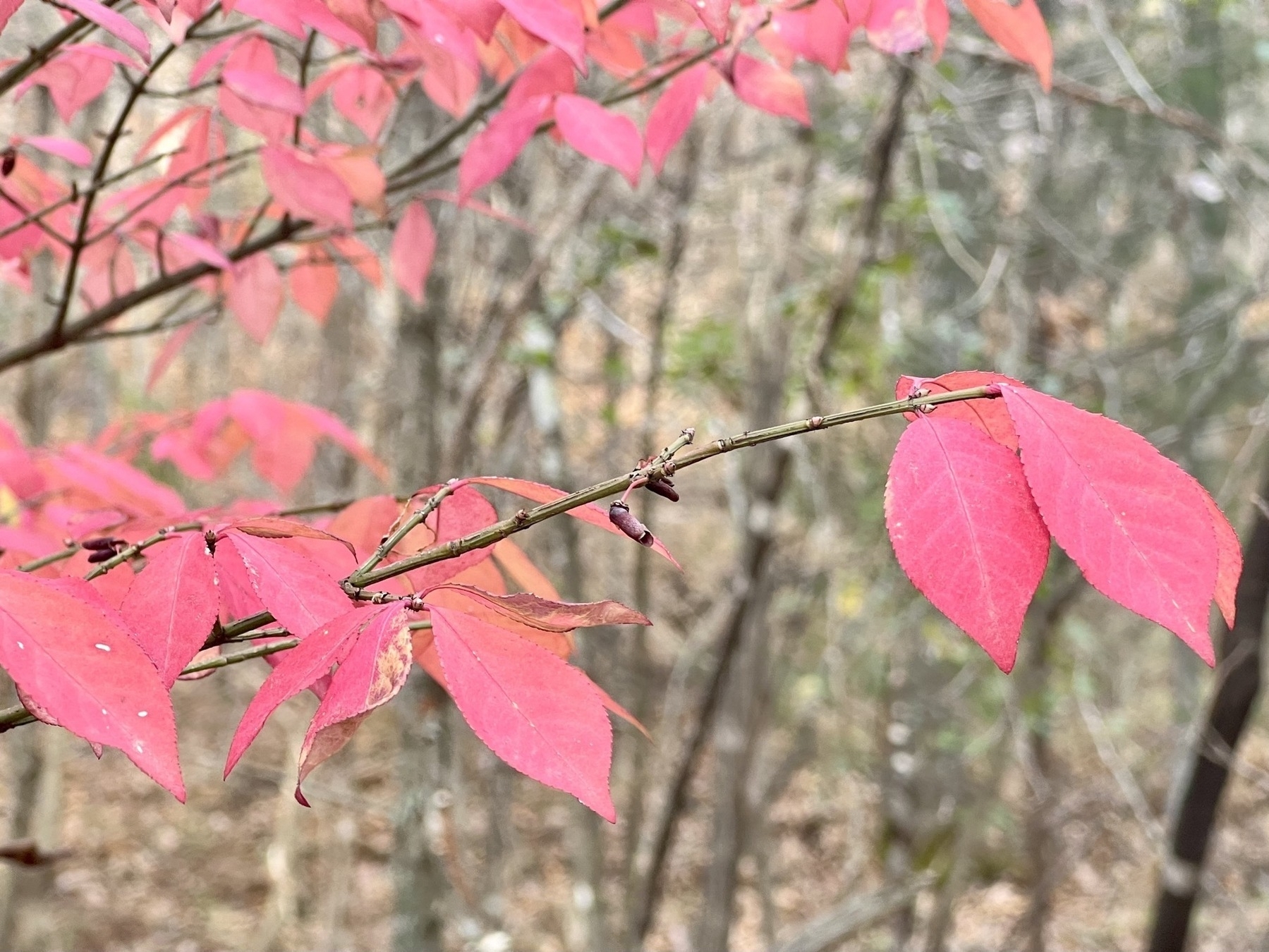
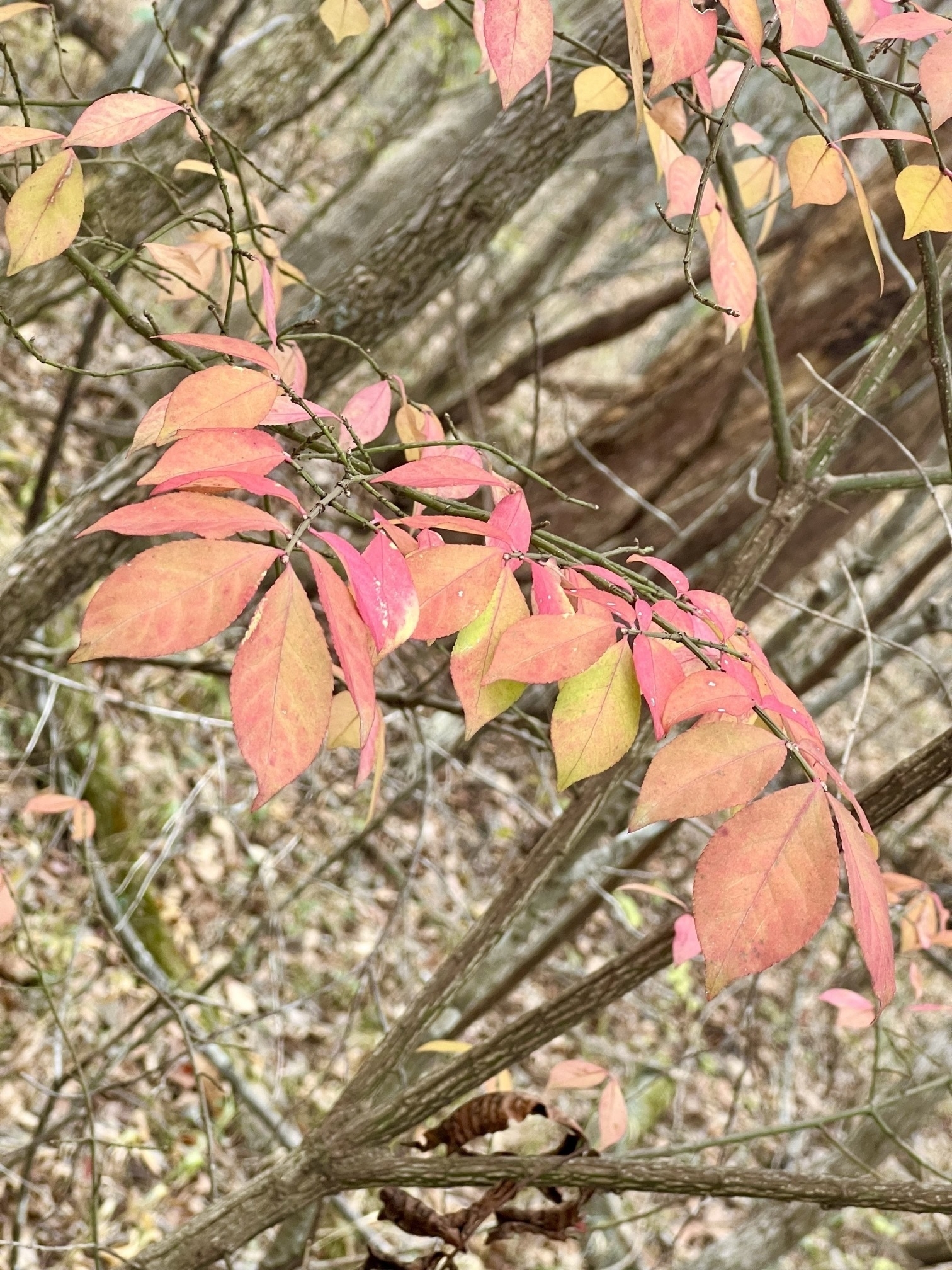
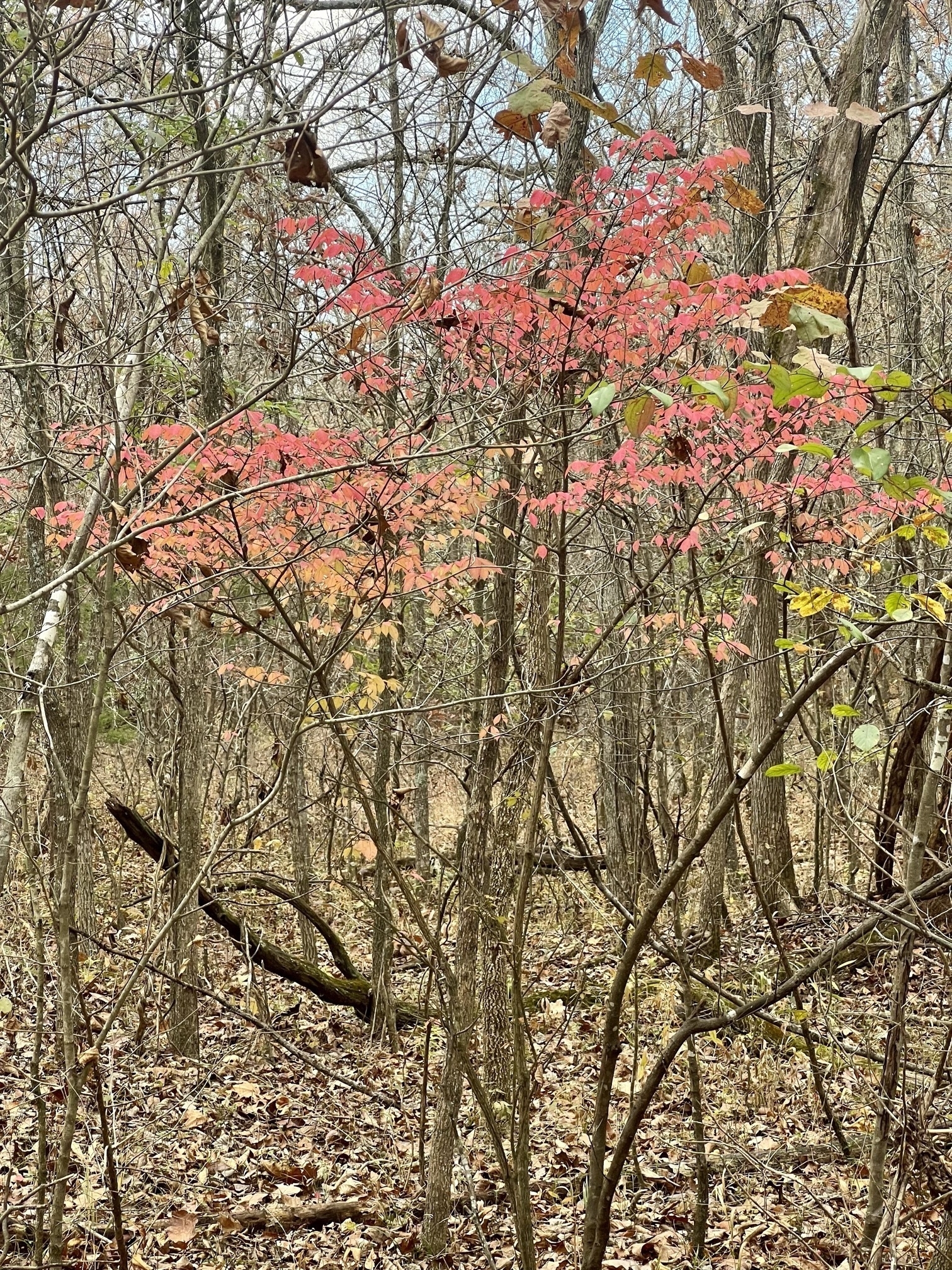
In honor of our great Veterans on Veteran’s Day, we pledge to you that we will root out the Communists, Marxists, Fascists, and Radical Left Thugs that live like vermin within the confines of our country, lie, steal, and cheat on Elections, and will do anything possible, whether legally or illegally, to destroy America, and the American dream.
It’s Official: With “Vermin,” Trump Is Now Using Straight-up Nazi Talk | The New Republic

